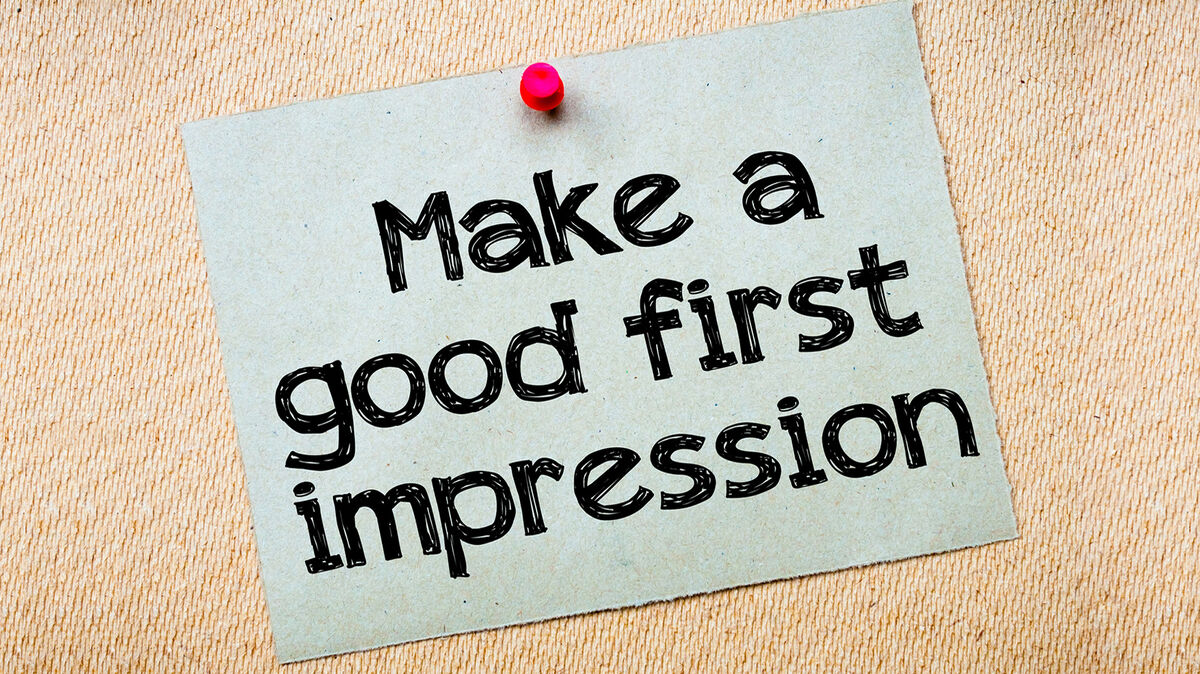
There are many words to describe a first impression. Adjectives are generally the best type of first impression words, though action verbs can also be appropriate. When describing a first impression, choose language that generates the feeling behind the words that is necessary to convey the message in a descriptive way.
What Is a First Impression?
A first impression is what a person thinks when they first encounter or meet another person. It is the feeling that a person gets as a result of his or her initial evaluation of another individual. A first impression can be formed as a result of a conversation, but it can also be created from just catching a glimpse of another person, even from a distance. Body language and eye contact can have a significant impact on a first impression.
Words to Describe a First Impression
Finding the right words to describe a first impression can be challenging, whether you’re trying to explain your first impression of an individual who recently crossed your path or if you’re trying to write about the first impressions formed when two characters meet in a story you’re working on. There are many types of first impressions.
Descriptive Words for a Positive First Impression
Consider one or more of these first impression examples that describe a positive first impression of another person.
amiable | assertive |
attractive | beautiful |
calm | clean |
comfortable | confident |
engaged | exuberant |
forthcoming | friendly |
gentle | genuine |
happy | honest |
humble | intelligent |
interested | interesting |
joyful | likable |
neat | open |
peaceful | respectful |
self-assured | smiling |
stylish | tidy |
trusting | trustworthy |
upbeat | well-dressed |
Descriptive Words for a Negative First Impression
Not every first impression is positive. Sometimes an individual’s first encounter with another results in a negative impression.
agitated | arrogant |
closed | dirty |
disheveled | dishonest |
disingenuous | disinterested |
disrespectful | frowning |
hateful | irritated |
mean | messy |
miserable | removed |
rude | sneaky |
snotty | standoffish |
stuck-up | suspicious |
ugly | unattractive |
uncomfortable | unhappy |
Other Terms for First Impressions
Not all words used to describe a first impression are negative or positive words. Sometimes they are simple observations about which the observer has not yet formed an opinion or judgment.
- elderly
- hesitant
- mature
- tentative
- uncertain
- youthful
Example Sentences Describing First Impressions
Whether describing the first impression a person makes in writing or in conversation, chances are you’ll use more than a single word or two to make your point. A sentence provides a much richer way to explain a first impression.
- The new employee seems amiable, friendly and open to getting to know everyone else.
- Bob’s new roommate seems to be really upbeat and likable.
- When I met her ex-husband, he seemed pretty unfriendly with an aggressive demeanor.
- I don’t know about her personality, but she is very beautiful and stylish.
- Something about that guy’s mannerisms seems sneaky and suspicious to me.
- When I met her, she came across as rude and stuck-up.
Managing Your First Impression
In addition to knowing how to describe a first impression, it’s also a good idea to consider what kind of first impression you may make on other people. Words can be tricky, especially when it comes to describing the first impression that someone may have of you. This is why it is crucial that you give off the right vibe at all times.
- If you’re going on a job interview, consider what impression you want to make on the interviewer. If you’d like the interviewer to describe you as professional and astute, then make sure you present yourself in a way that’s likely to leave that kind of first impression. The way you dress, how you behave and how eloquently you speak can help you make a first impression as a candidate who is professional and astute.
- If someone notices you from the other side of the room, what will their first impression be? Smiling and standing up straight, in a way that indicates good posture, can help you make a positive first impression. The act of smiling can help you make a first impression as friendly or approachable, and good posture conveys confidence.
- When someone comes up to speak with you at an event, nonverbal communication, such as tone of voice and body language, will determine whether the person is likely to form a positive first impression or a negative one. Looking away could make you seem standoffish, while eye contact could lead them to see you as attentive.
Have you ever heard the saying "It's not what you say but rather how you say it?" This statement alone speaks volumes and can make or break a first impression. Sometimes the way a person delivers their sentences or statements is a complete deal breaker regarding the first impression that they give. So you should definitely be mindful of how you deliver your statements.
Describing a First Impression Accurately
Using descriptive language appropriately is an important key to explaining a first impression. Now that you’re familiar with some words and sentences that can be used to describe a first impression, expand your skills by learning more about descriptive language. Start by exploring a list of adjectives to describe tone, feelings and emotions. The greater your mastery of descriptive language, the more effective your face-to-face and written communication will be.